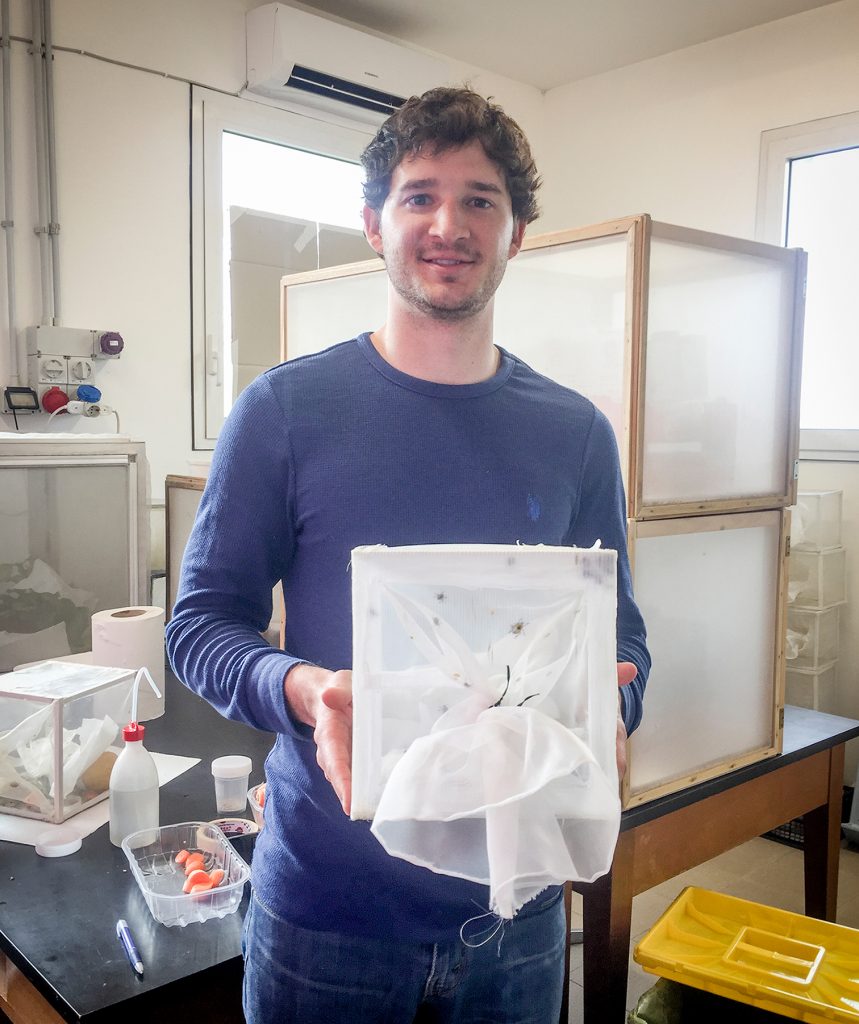UGA/University of Padova Dual Master’s Program: First UGA Student Begins 18 Months of Study in Italy
By Denise H. Horton | Photos by Paola Tirello
Growing up in Tifton, Logan Moore knew he would follow the family tradition of earning his associate’s degree from Abraham Baldwin Agricultural College. Remaining in his hometown and earning his bachelor in agriculture degree from the University of Georgia Tifton campus made sense, too.
“It’s about as good as it gets,” he says.
But after learning he could earn simultaneous master’s degrees from the University of Georgia and one of Italy’s leading research institutions, Moore decided to spread his wings and has spent the past year conducting research and taking classes for his thesis at the Universitá Degli Studi di Padova, or UNIPD, making him the first UGA graduate student to pursue the new dual master’s degree opportunity.
The program is the result of faculty relationships that date back two dozen years when Francesco Morari traveled to Tifton to conduct research for his dissertation. Morari is now an associate professor of environmental agronomy at UNIPD.
“Francesco and I became friends while he was in Tifton and through the years we’ve looked for opportunities to collaborate,” says George Vellidis, UGA professor of crop and soil sciences.
One of their earliest efforts dates back to 2004 and the establishment of the TransAtlantic Precision Agriculture Consortium that includes faculty from UGA, Auburn University and Mississippi State University in the United States, and UNIPD in Italy, the Technical University of Munich in Germany, and the University of Thessaly in Greece.
“Our first exchange program focused on undergraduate students studying in the U.S. or at one of the European universities for a semester,” Vellidis says. “Then, we began some internship exchanges for master’s students.”
In 2015, UGA and UNIPD signed a memorandum of understanding to offer a dual graduate degree in sustainable agriculture. The next year was spent studying all aspects of the programs at the two universities from admissions requirements to which courses were required.
“In order for the students to qualify for a master’s degree from both universities, each university had to examine the courses that were being taken and ensure they covered the appropriate concepts and had the same level of rigor,” Vellidis explains. “We also had to determine how the students’ faculty committees would be established to ensure there was balanced representation from the two institutions.”
Ultimately, details were ironed out and in fall 2016 Moore was accepted into the program at UGA along with two Italian students who began their year of coursework at Padova. Moore, who moved to Padova in mid-May of 2017 along with his wife, Casey, has been studying the brown marmorated stink bug—a relatively new pest in both Georgia and Italy, but one that can cause millions of dollars in damage if not controlled.
Founded in 1222, UNIPD is considered among the oldest universities in the world. Located about 25 miles from Venice in northern Italy’s Veneto region, the city of Padova is much older—tracing its roots to 1183 BC. In addition to scores of notable faculty and alumni—Galileo Galilei taught mathematics at UNIPD for 17 years and astronomer Nicolaus Copernicus and the founder of modern anatomy Andrea Vesalio both studied there—the world’s oldest botanical garden, established in 1545, is also located at the university.
However, it’s not Padova’s storied history that appealed to Vellidis in pursuing the dual master’s degree.
“The University of Padova is a top-ranking institution in many areas of research, including agriculture,” he says. “By studying there for a year or more, our graduates will develop a global perspective and understanding of agriculture. They’ll also have had the opportunity to live and learn in a place that has different ways of doing things, those experiences will prepare them to explore a far broader range of professional opportunities.”
Although the dual master’s degree is young, it already has been recognized by the University of Georgia as an important contribution to the internationalization of the institution. Last year, the Richard Reiff Internationalization Award was awarded to Vellidis, Miguel Cabrera and Victoria McMaken for their efforts in establishing the degree. Cabrera is a professor and graduate coordinator in the College of Agricultural and Environmental Sciences Department of Crop and Soil. McMaken is associate director of the CAES Office of Global Programs.
As the program becomes more established, Vellidis hopes to increase the number of UGA and UNIPD faculty who are involved.
“We want to create more relationships with our counterparts,” he says. “You can’t sustain a dual master’s without having faculty in both locations doing some of the same types of research.”
While the UGA master’s degree will be in crop and soil sciences with an emphasis in sustainable agriculture, Vellidis and his colleagues are committed to providing a broad range of research opportunities.
In the case of Moore, for example, Vellidis and Mike Toews, a UGA entomology professor who has been studying the stink bug for several years, are serving as co-major professors.
Moore agrees with Vellidis that earning dual master’s degrees will better prepare him for the future, whether that future includes earning a doctorate and pursuing a research or faculty position or returning to the family business in South Georgia, which conducts a wide array of crop testing and research for private companies.
For More Information:









